The 2025 Comprehensive Older Adults Exam With 150 Questions: Essential Questions, Answers, and Expert Rationales for Geriatric Healthcare Mastery is a robust study resource tailored for nursing students, healthcare professionals, and exam candidates preparing for geriatric-focused assessments in 2025. This guide includes 150 meticulously designed questions that reflect the complexities of older adult care, covering critical topics such as age-related physiological changes, chronic disease management (e.g., diabetes, hypertension, and dementia), polypharmacy, fall prevention, and end-of-life care. Each question is paired with detailed answers and expert rationales, providing in-depth explanations of concepts like the Beers Criteria for potentially inappropriate medications, delirium versus dementia differentiation, and nutritional needs in aging populations. The guide also addresses high-yield areas such as elder abuse recognition, palliative care principles, and mobility assessments, ensuring a comprehensive understanding of geriatric healthcare. Aligned with the latest standards in geriatric nursing, this resource is ideal for mastering both theoretical knowledge and practical application, whether for nursing school exams, NCLEX preparation, or certifications like the Gerontological Nursing Certification (Gero-BC). It includes test-taking strategies and tips for managing the unique challenges of caring for older adults, making it an essential tool for achieving excellence in geriatric healthcare and ensuring patient-centered care for this vulnerable population.
Preview
1. You are caring for an adult, obese patient who is 5 days post-discharge from a
hospitalization due to a DVT. Which instructions would you NOT give to minimize the
recurrence of a thrombosis?
a) Start vigorous exercise immediately
b) Use support stockings daily
c) Report bleeding of gums and bruising
d) Avoid prolonged inactivity
Correct Answer: a) Start vigorous exercise immediately
Rationale: Vigorous exercise shortly after a DVT increases the risk of clot dislodgment and
embolization. Instead, patients should gradually increase activity levels under medical
guidance.
2. You are evaluating a 65-year-old male with known PVD and who is a current smoker.
What is your initial evaluation?
a) Order a venous reflex study
b) Assess the pedal and posterior tibial pulses
c) Order compression stockings
d) Order a venogram
Correct Answer: b) Assess the pedal and posterior tibial pulses
Rationale: Evaluating arterial pulses provides critical information on the severity of
peripheral vascular disease and helps guide further diagnostic and treatment decisions.
3. You review a lower extremity duplex study to discover the diagnosis of a non-septic,
superficial thrombophlebitis. What is the recommended treatment?
a) Cool compresses, elevate extremity, ibuprofen 400mg TID, Keflex 500 mg TID for 10 days
b) Warm compresses, elevate extremity, naproxen sodium 500mg BID with food
c) Hospital admission, IV antibiotics
d) Hospital admission, IV heparin, then warfarin PO for 3-6 months
Correct Answer: b) Warm compresses, elevate extremity, naproxen sodium 500mg BID
with food
Rationale: Non-septic superficial thrombophlebitis is managed conservatively with warm
compresses, NSAIDs for pain relief, and limb elevation to reduce swelling.
hospitalization due to a DVT. Which instructions would you NOT give to minimize the
recurrence of a thrombosis?
a) Start vigorous exercise immediately
b) Use support stockings daily
c) Report bleeding of gums and bruising
d) Avoid prolonged inactivity
Correct Answer: a) Start vigorous exercise immediately
Rationale: Vigorous exercise shortly after a DVT increases the risk of clot dislodgment and
embolization. Instead, patients should gradually increase activity levels under medical
guidance.
2. You are evaluating a 65-year-old male with known PVD and who is a current smoker.
What is your initial evaluation?
a) Order a venous reflex study
b) Assess the pedal and posterior tibial pulses
c) Order compression stockings
d) Order a venogram
Correct Answer: b) Assess the pedal and posterior tibial pulses
Rationale: Evaluating arterial pulses provides critical information on the severity of
peripheral vascular disease and helps guide further diagnostic and treatment decisions.
3. You review a lower extremity duplex study to discover the diagnosis of a non-septic,
superficial thrombophlebitis. What is the recommended treatment?
a) Cool compresses, elevate extremity, ibuprofen 400mg TID, Keflex 500 mg TID for 10 days
b) Warm compresses, elevate extremity, naproxen sodium 500mg BID with food
c) Hospital admission, IV antibiotics
d) Hospital admission, IV heparin, then warfarin PO for 3-6 months
Correct Answer: b) Warm compresses, elevate extremity, naproxen sodium 500mg BID
with food
Rationale: Non-septic superficial thrombophlebitis is managed conservatively with warm
compresses, NSAIDs for pain relief, and limb elevation to reduce swelling.




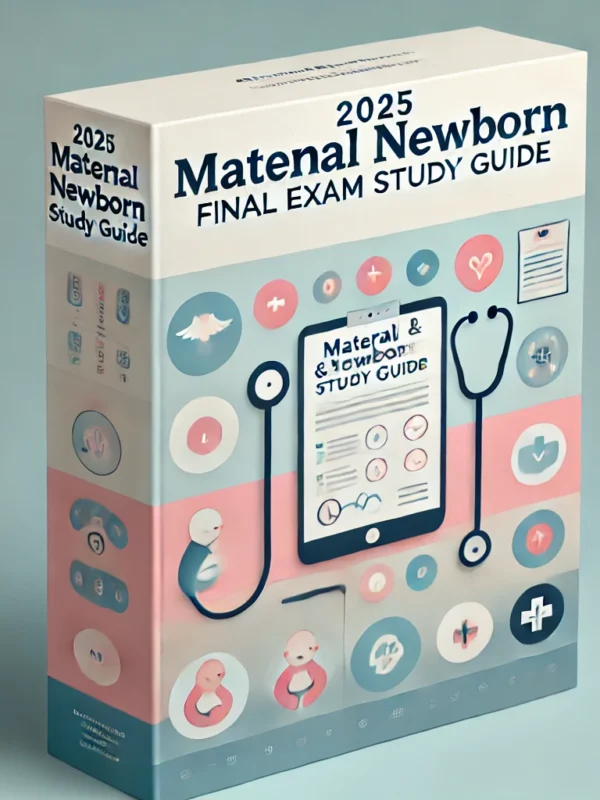
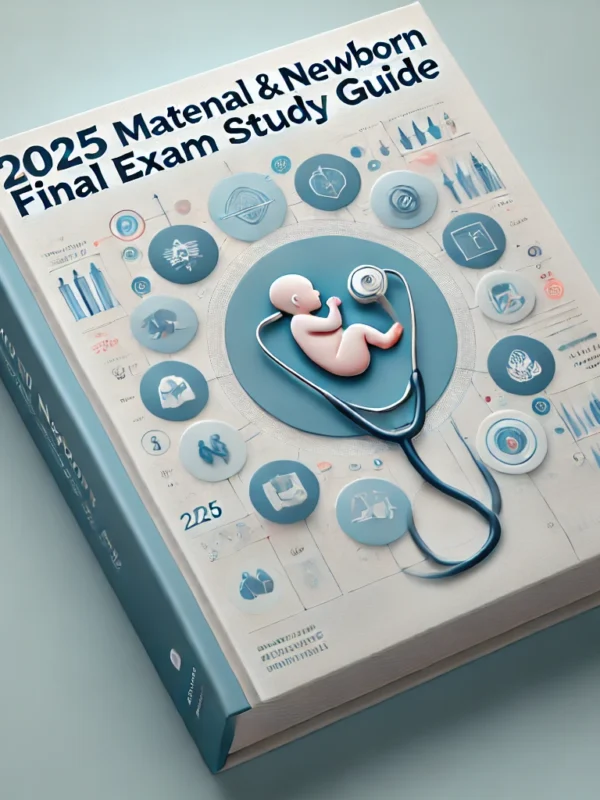
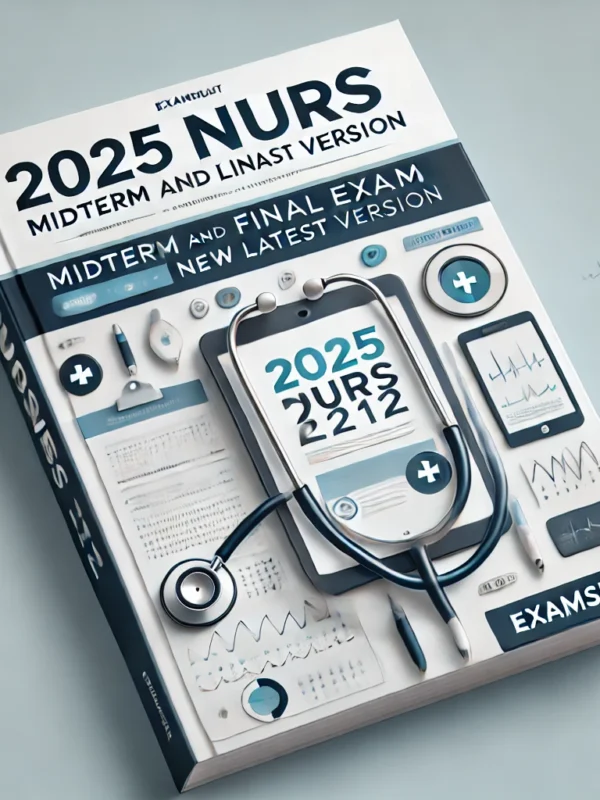
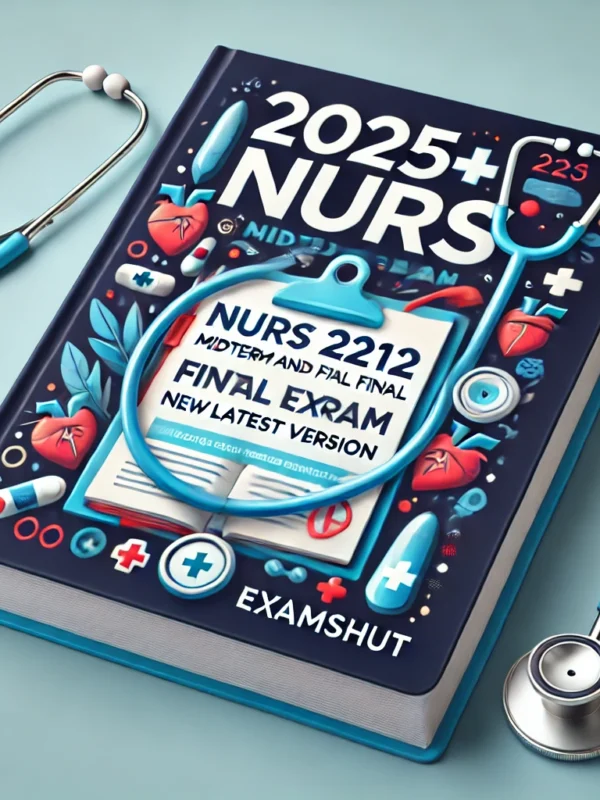
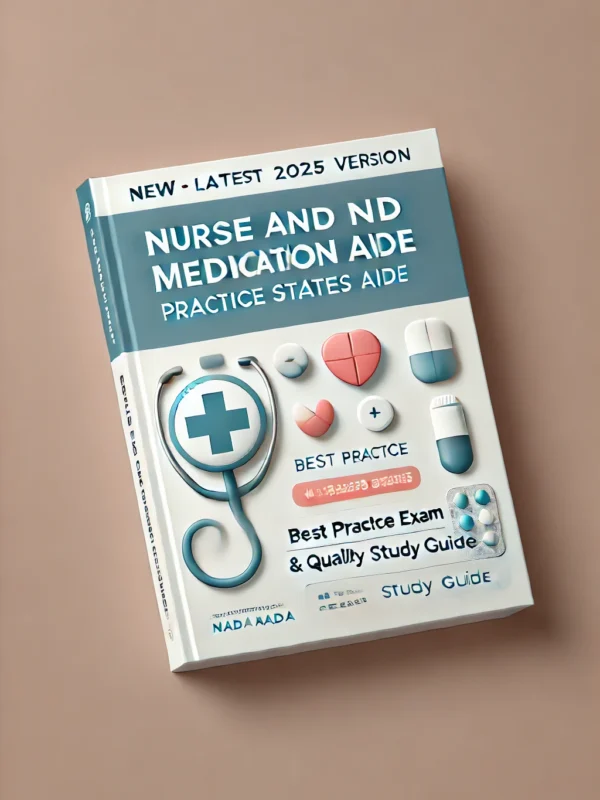

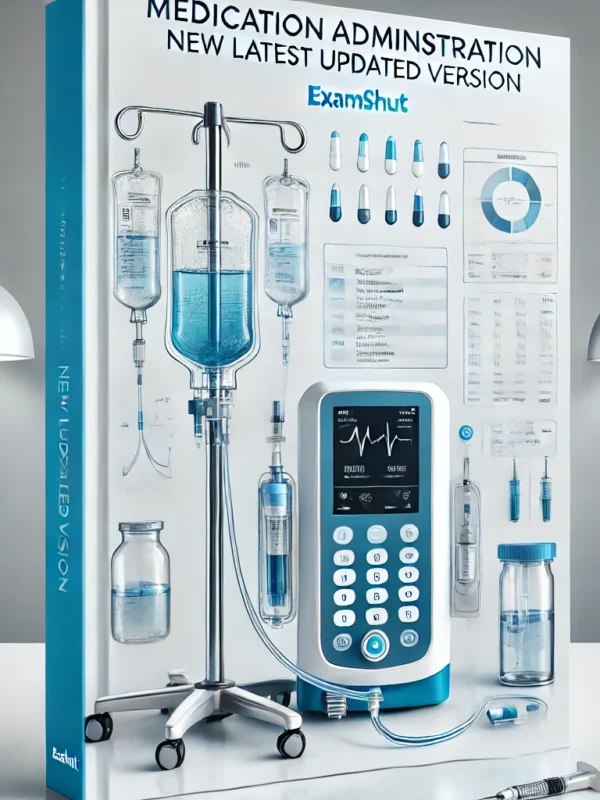
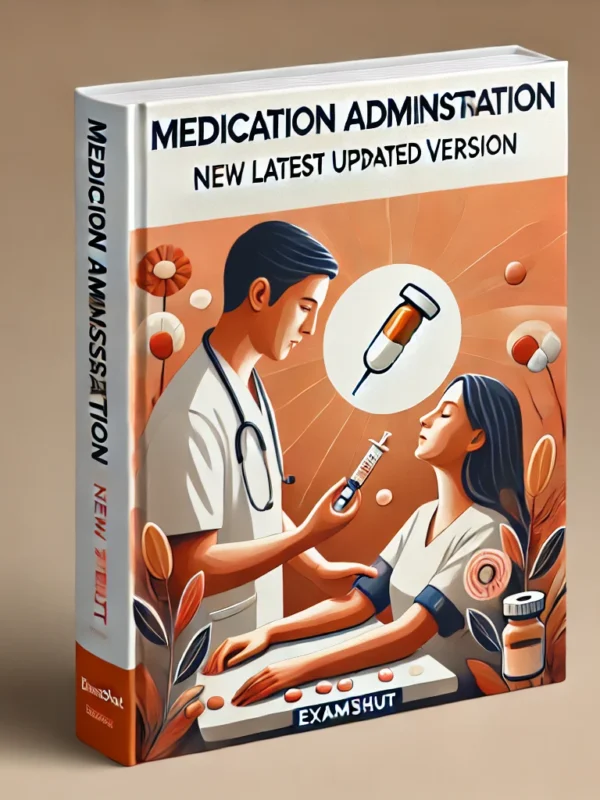
Reviews
There are no reviews yet.